


Experts and workers braced the harsh conditions in the highland and tried different ways of planting trees.
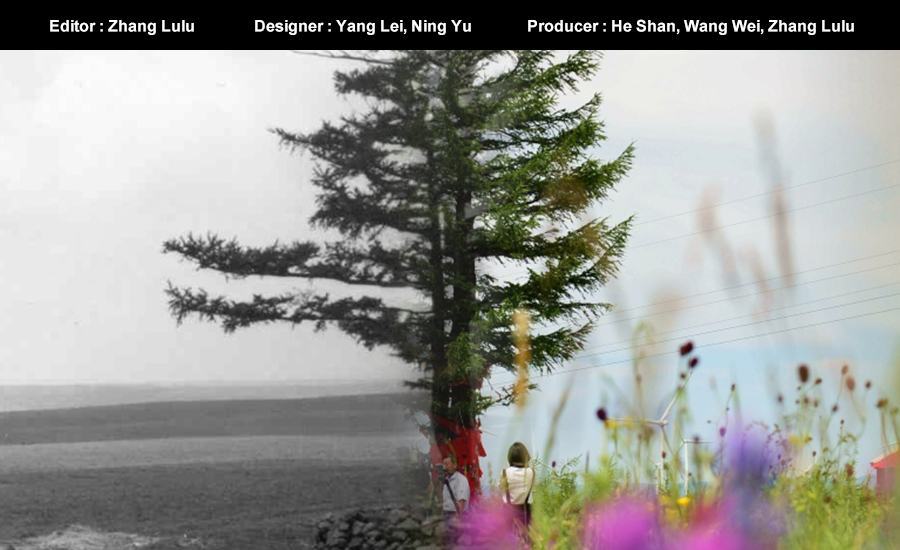
"The tree of merit," once the only tree in sight at Saihaba, is now surrounded by trees and flowers.
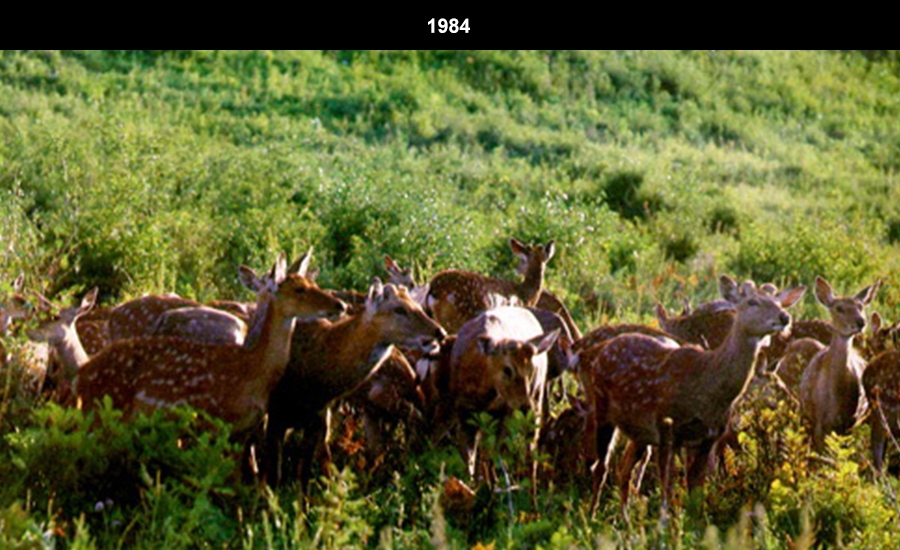
Several thousand hectares of trees fell down in 1977 and in 1980 due to frost and drought, but people at Saihanba continued to grow trees, eventually turning wasteland into woodland.
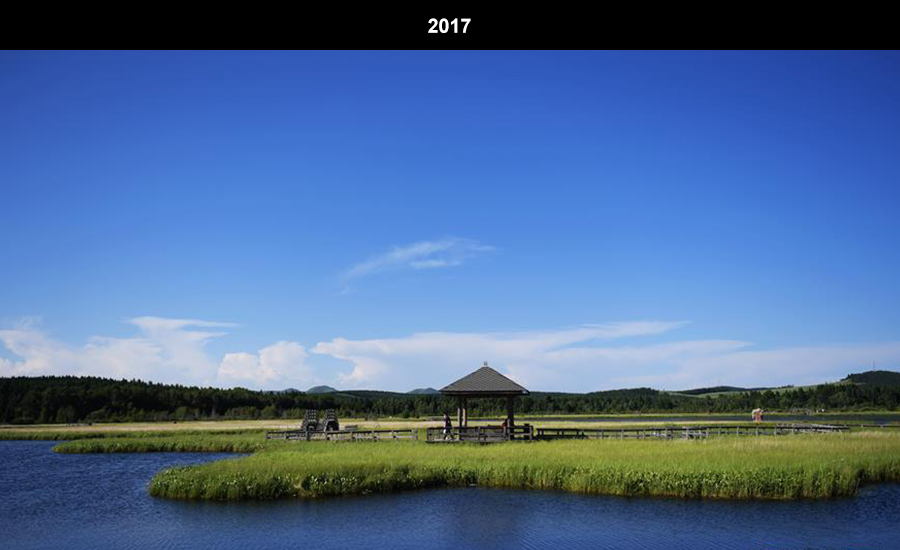
The Saihanba National Forest Park attracts more than 500,000 tourists every year, recording ticket revenue as high as 40 million yuan (US$6 million).
7427ea21094f1b64bd2d20.jpg)
Saihanba has become a famous tourist destination over the years. The Saihanba National Forest Park was set up in 1993.
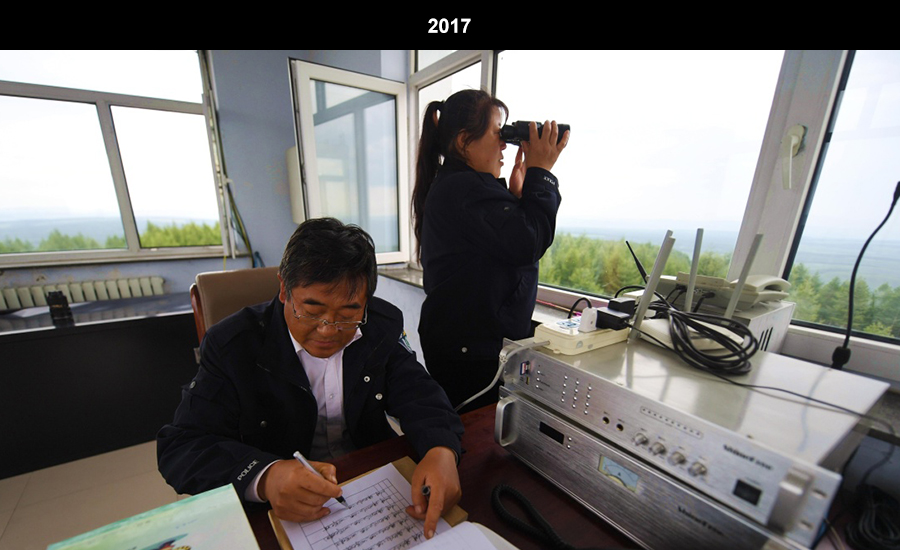
Liu Jun (L), 46, is a fire watchman at Saihanba. He, along with his wife Qi Shuyan, has been working at the forest farm for more than a decade. Many people have dedicated themselves to turning the wasteland into a green haven.
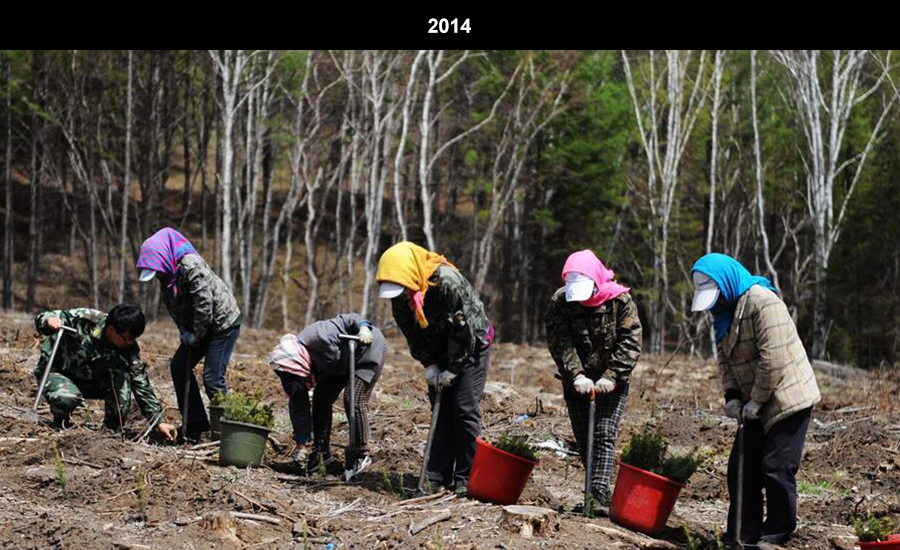
Workers kept planting trees at Saihanba.
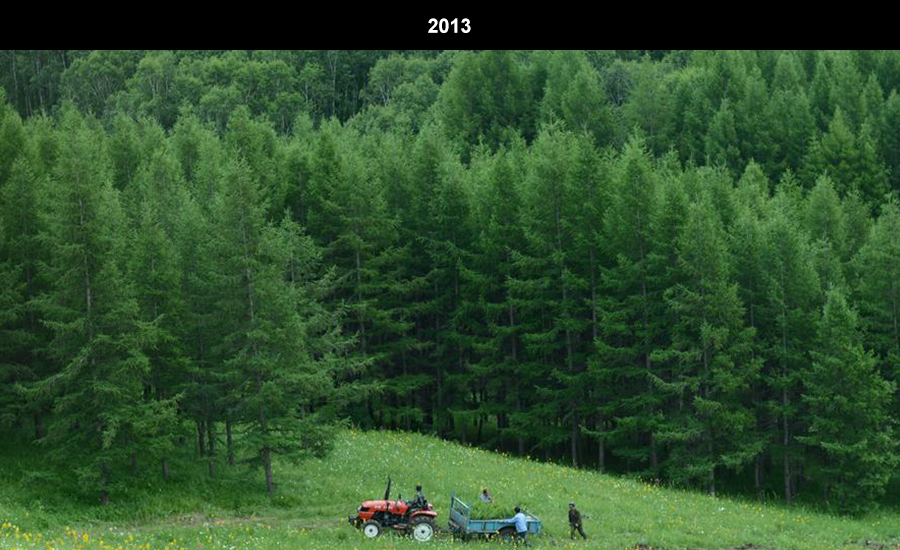
Generations of forestry workers dedicated themselves to Saihanba.
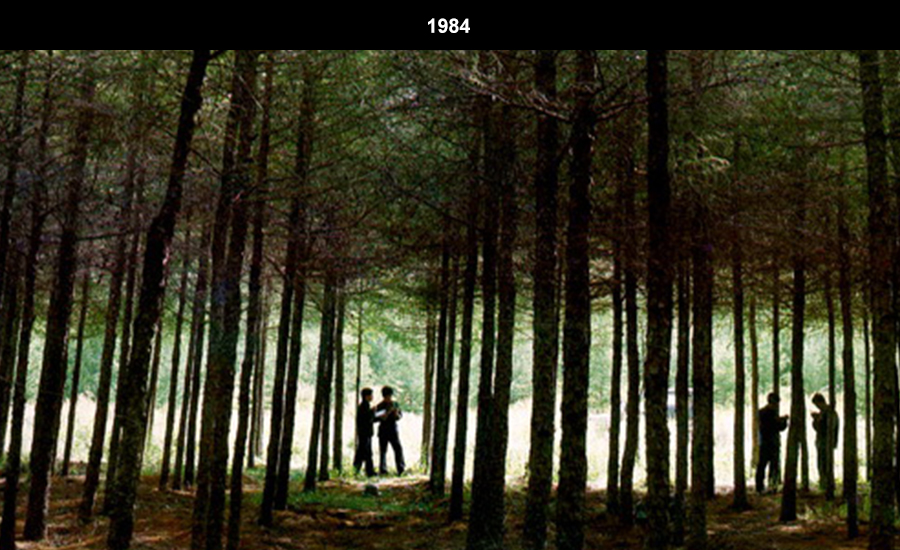
Several thousand hectares of trees fell down in 1977 and in 1980 due to frost and drought, but people at Saihanba continued to grow trees, eventually turning wasteland into woodland.

A total of 369 people, with an average age of 24, began the decades-long project in the barren highland in 1962. A group of forestry graduates left their homes across China for Saihanba in the fall that year.

Saihanba, situated between northern China's Hebei Province and Inner Mongolia Autonomous Region, is China's largest man-made woodland. The name means "beautiful highland," and the area has transformed from a barren wasteland to a sea of trees thanks to 55 years of diligent work from several generations of forestry experts and workers. It now boasts about 750 square kilometers of woodland, forming a strong wind shield for northern China and helping to purify 137 million cubic meters of water every year. Saihanba has been called a classic example of ecology protection in China.
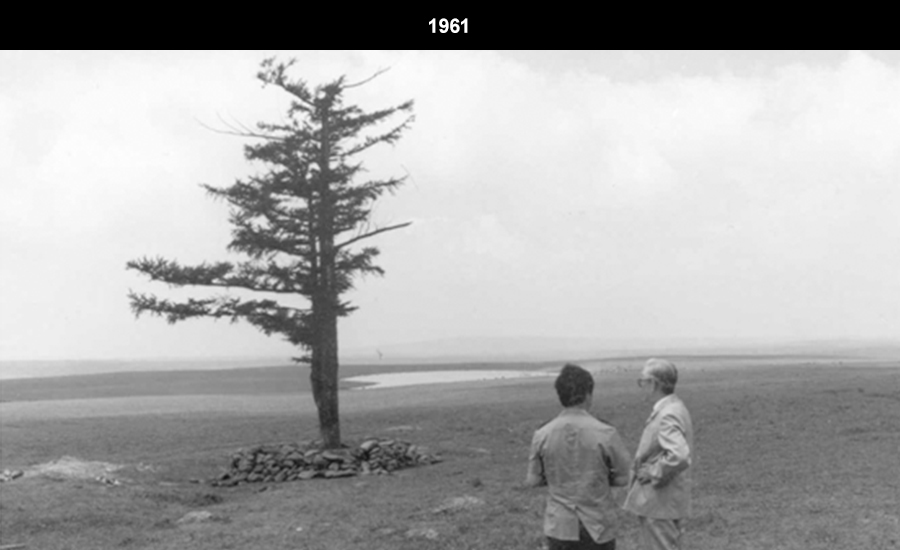
When a group of forestry experts visited Saihaba in 1961, they did not find a single tree until their third day there. They were inspired and convinced that more trees could be planted at Saihanba. The tree was therefore named "the tree of merit."

The Saihanba Forest Farm was established in 1962. Since then, the area witnessed its forest coverage soaring from 12 percent that year to 80 percent in 2016.

